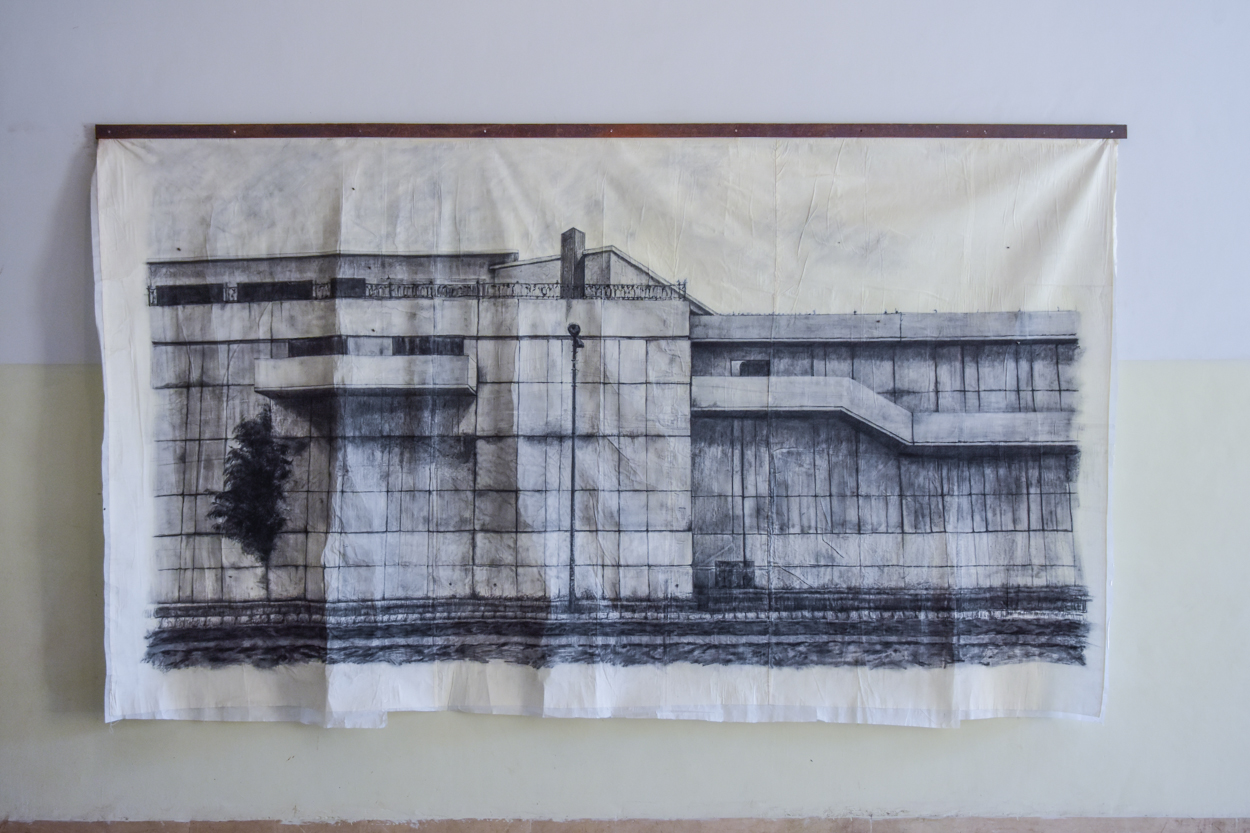Omer Wasim/Saira Sheikh
Omer Wasim (b. 1988, Karachi) has a BFA in Interdisciplinary Sculpture and an MA in Critical Studies from the Maryland Institute College of Art (MICA), Baltimore, USA. He has been teaching and practicing in Pakistan, since 2014, and is currently a faculty in the Liberal Arts Programme at the Indus Valley School of Art and Architecture. Saira Sheikh (1975, Karachi – 2017, Karachi) had a BFA from the National College of Arts (NCA), Lahore, Punjab, and an EdM from Teachers College, Columbia University, New York, USA. She had been teaching and practicing in Karachi, Pakistan, since 2013, and was Associate Professor and Head of the Liberal Arts Programme at the Indus Valley School of Art and Architecture, Karachi. Omer Wasim & Saira Sheikh are visual artists who practice together, and cast a retrospective glance at the present to radically examine and mine contemporary art practices, and recent, albeit superficial, interest of the global west in their region; and also to reconfigure, re-articulate, and disrupt existing and complacent modes of artistic engagement and production. Wasim continues to execute projects that were jointly conceived.
Wasim and Sheikh have written of their practice: “Given where we are situated in time and place, unnerved by our implicit and explicit experiences and collaborating with uncertainty and volatility, we attempt to understand the present by casting a retrospective glance; treating the present as past helps defy immediacy, allowing for conceptual and critical distance from contemporary realities, both corporeal and incorporeal, systems, and rhetoric. Our aim is to debunk and unpack (self-) colonising modes of knowledge construction and circulation by embracing contradictions as central to making and thinking—since any attempt to redact contradiction compromises possibility and criticality. Using a retrospective glance, we narrate through visuals, excavated in an unspecified future, from data buried and lost in digital and material archives in and around Karachi, to reorient the gaze toward the current epoch. Our projects include fictional and factual readings of collected and constructed images and objects; in order to witness, challenge, and disrupt unitary or binary readings of human ecologies, consumption, value, and labour. The data symbolises, enacts, and enables these contradictions, intensifying the very anxieties that it aims to subjugate, and in being isolated from its context becomes a relic of neoliberalism, hinting at modes—new and old—of constructing knowledge and histories. We, as artists, are not mere participatory observers, or witnesses, but are also responsible for generating, circulating, and perpetuating these hegemonic systems of constructing knowledge and histories. Recognising that it would be fallacious to assume otherwise, we acknowledge our complicity and agency, make them an integral part of our work, while simultaneously making ourselves accountable. Stemming from these frameworks, we investigate the global contemporary, the recent, albeit superficial, interest of the global west in this region, and art practices that pander to western as well as local ideas about living and making work in, from, and about Pakistan. We work together and in lieu of depoliticising or aestheticising politics, attempt to politicise aesthetics, and radically (“from Latin radix, radic-‘root’”) reconfigure, re-articulate, and disrupt existing and complacent modes of critical engagement and artistic production.”

1371.2, 2016.
Charcoal and conté on reinforced canvas, with metal hanging mechanism
335 x 183 cm.

